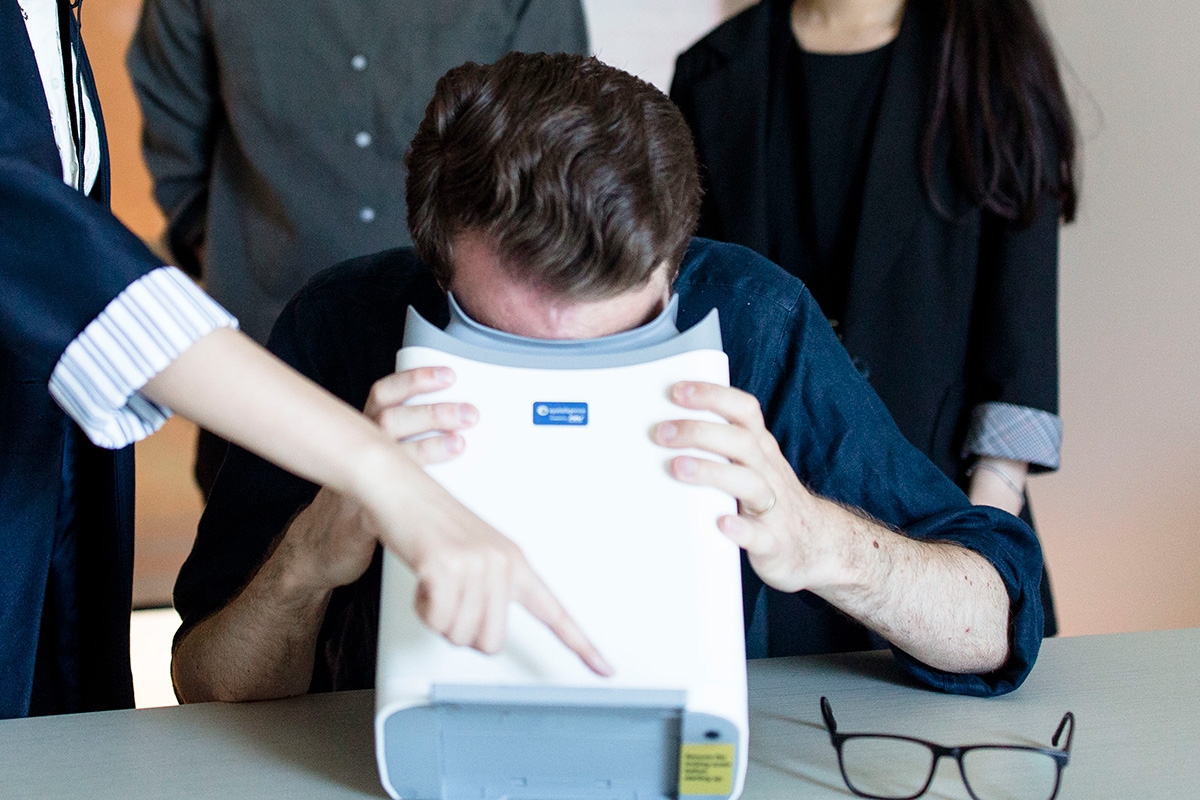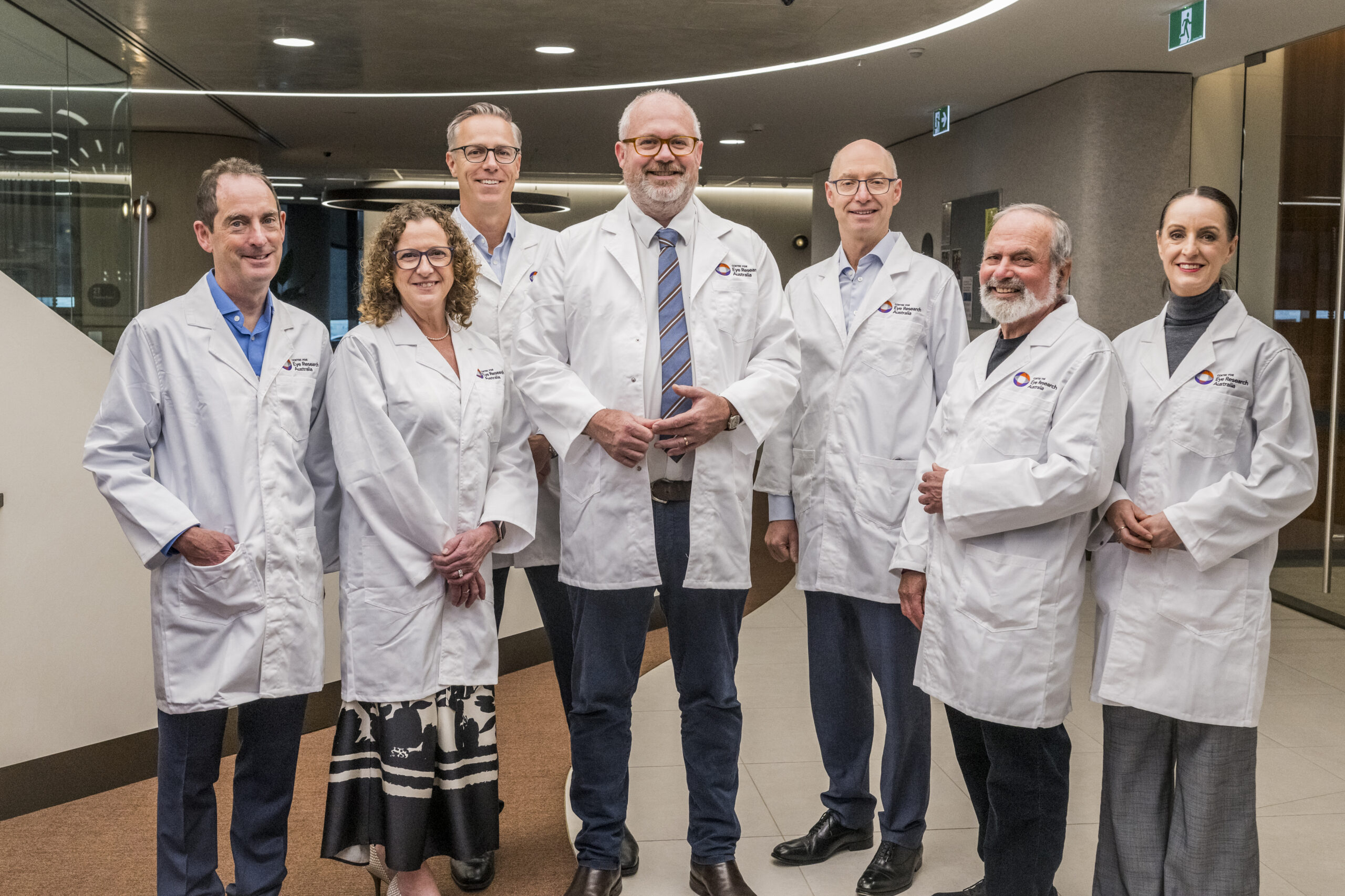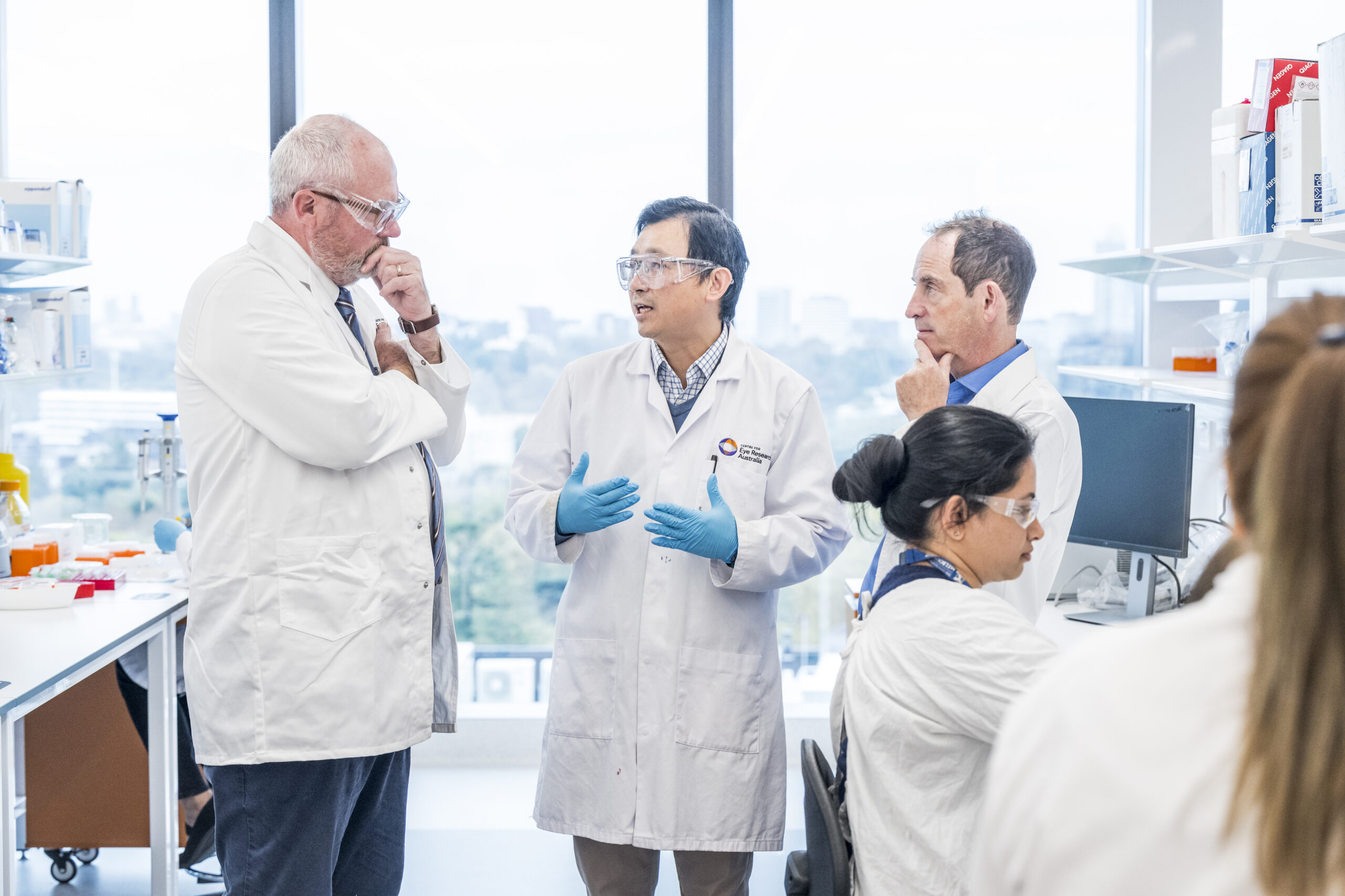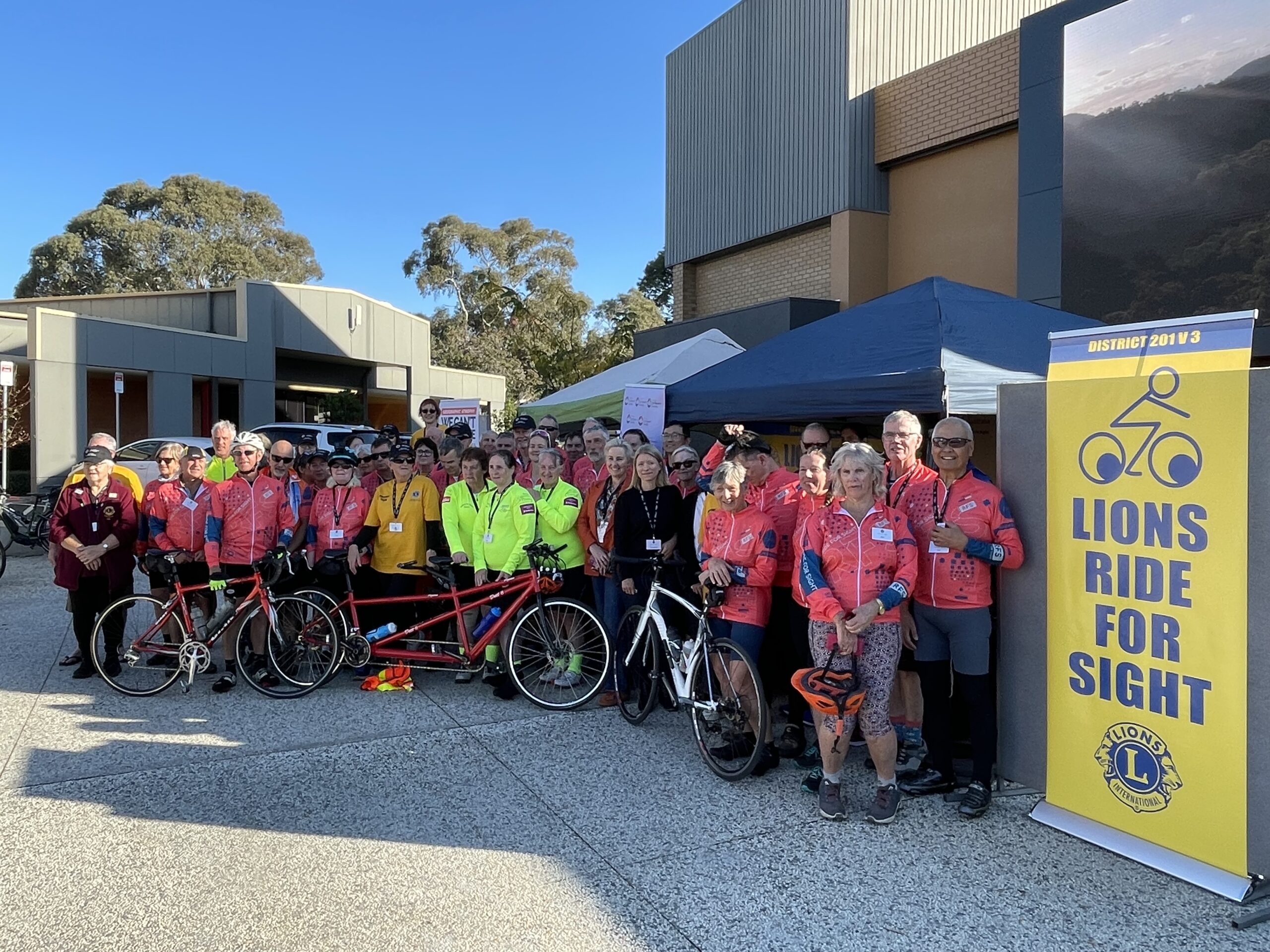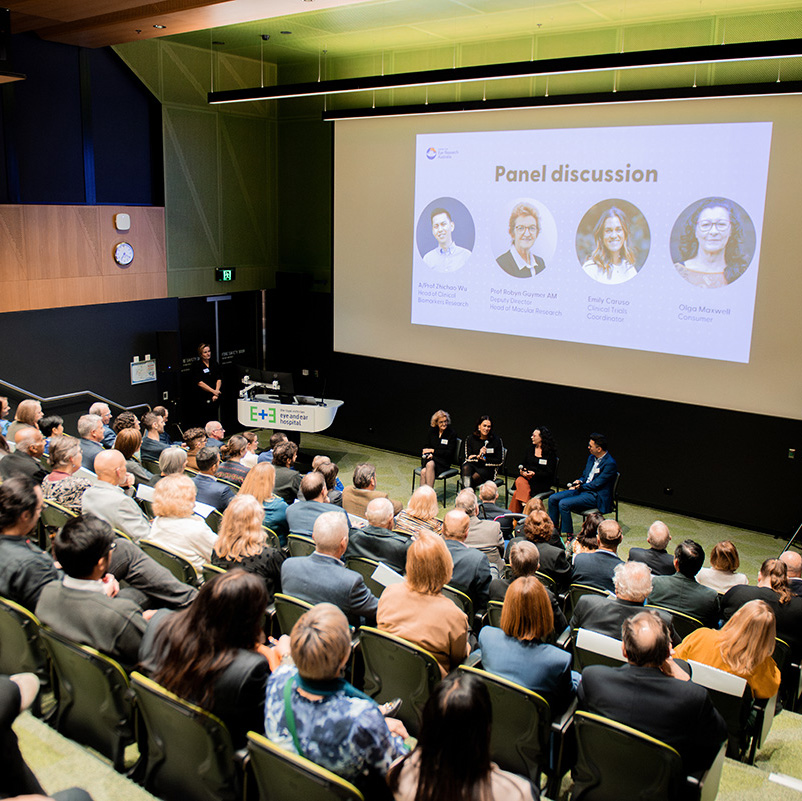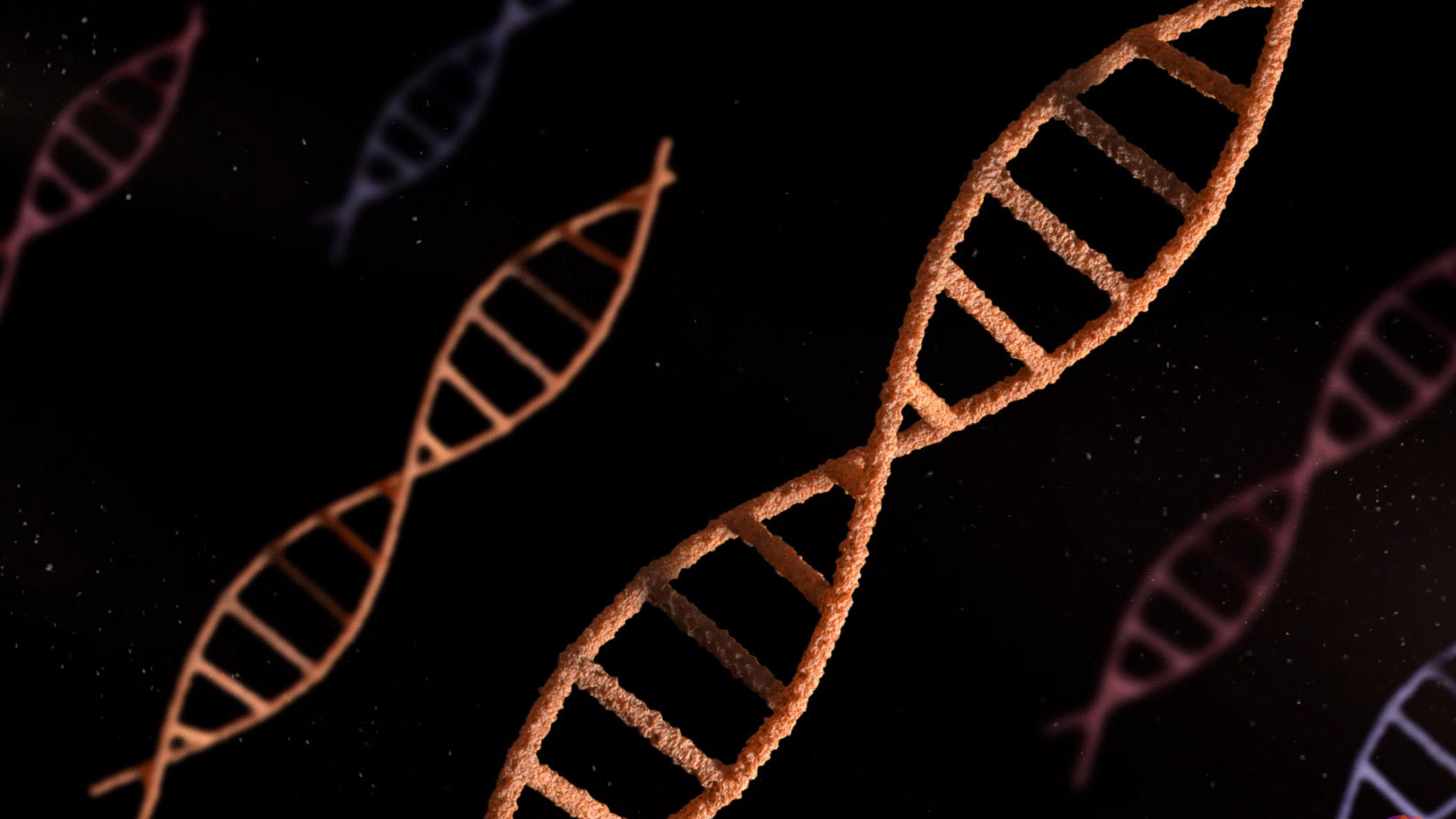Ongoing support makes a world of difference
News
Ongoing support makes a world of difference
After treatment for a sudden loss of vision, Professor Carmel McNaught and Dr David Kennedy were inspired to make a regular gift to research so scientific discoveries can benefit people worldwide.
Over four years ago, Professor Carmel McNaught went to the Royal Victorian Eye and Ear Hospital Emergency with blurred vision in her right eye.
It was there that she was diagnosed with a retinal vein occlusion – when veins in the retina become blocked, leading to blurry vision or vision loss in one eye, or more seriously, swelling or bleeding.
“From that moment when I charged into the emergency department not being able to see – and the team there looking after me so well – to then being asked to join one of CERA’s clinical trials; and now, years later, being a volunteer on CERA’s Consumer Program -I couldn’t ask for a more positive journey,” she says.
As part of their ongoing journey with CERA, Professor Carmel McNaught and Dr David Kennedy both give a regular monthly donation to CERA and have also both left bequests in their wills to support research.
Confidence in CERA
“David and I feel confident that anything we donate to CERA is going to be used in the best possible way,” Professor McNaught says.
“Our experience with CERA for many years is unfailingly positive and professional.
“We couldn’t ask for anything better.”
She and her husband both want to support research that will allow many more people to access new treatments able to protect people’s sight.
“Australia has got all these brilliantly talented people and does this cutting-edge eye research, and it’s important that we continue to, over time, build our research capacity here on home soil,” she says.
“It’s one of the main reasons David and I regularly give – CERA has proven its value.”
Research takes time
Research towards discovering new treatments to prevent blindness can take years and requires support every step of the way.
An ongoing monthly donation to CERA helps scientists plan ahead as they take projects on the journey from the lab to the bedside.
It enables us to continue to build our capacity to lead innovative research projects into eye disease to prevent blindness and ultimately, restore sight.
If you would like to join us in our ongoing mission, consider signing up for a monthly donation and help bring new and more effective treatments to life.

